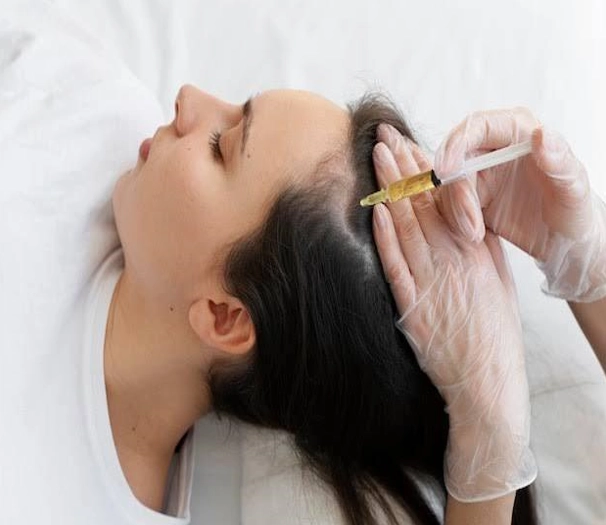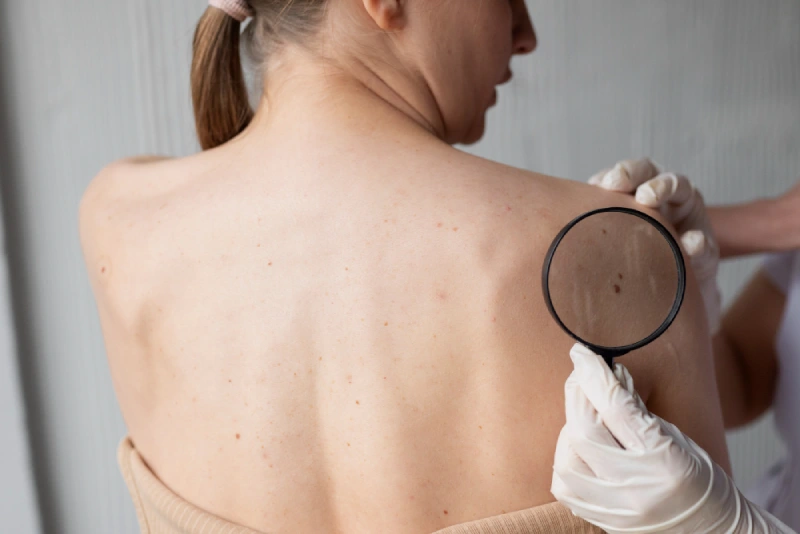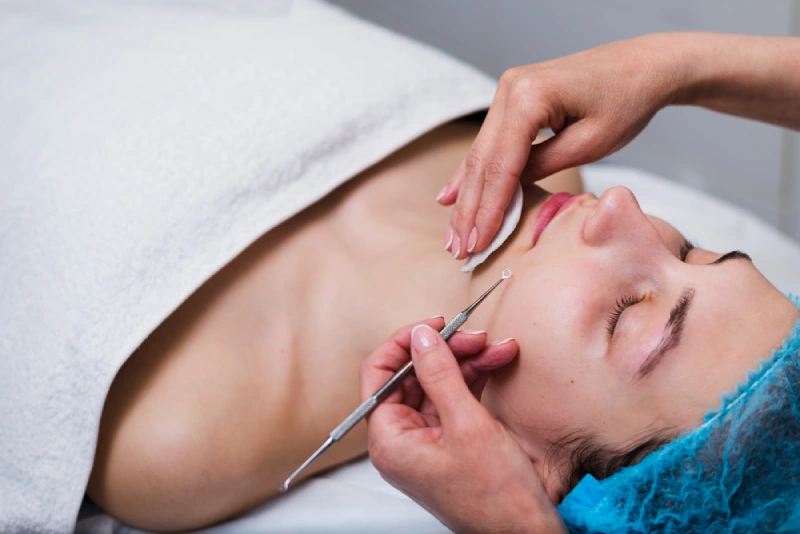What Exactly is Dermaplaning
Dermaplaning is a simple exfoliation procedure that can take as little as 20-30 minutes as a stand alone treatment, although it’s often included as a step in facials.
Your dermatologist will use a sharp blade at a 45° angle to carefully scrape the surface of your skin, thus removing the outer layer of dead cells (the stratum corneum) and any baby hairs. Don’t be afraid! This treatment should not ever be painful. Your doctor or aesthetician will use gentle, controlled strokes to ensure an appropriate level of exfoliation for your skin.
Expected Benefits
There are many potential benefits to dermaplaning. Everybody’s skin is unique but here are some benefits that you might expect.
- Many people notice smoother, brighter looking skin right away.
- Your skin will absorb products more effectively without a layer of dead skin cells blocking their entrance into the lower layers of your skin. Your serums and actives will be used more efficiently after dermaplaning.
- If you wear makeup you might expect it to apply more smoothly and easily and show less skin texture.
- Fine lines and wrinkles might be less noticeable.
- Acne scars may be improved.
- Dark spots may fade due to increased cell turnover.
- You may be less likely to break out when your dead cells are removed. They can’t clog your pores if they’re not there!
Who Can Get Dermaplaning
Almost everybody can get dermaplaning. People with dry skin, oily skin, combo skin, young skin, mature skin, white skin, black skin, brown skin are all acceptable candidates for dermaplaning.
Talk to your doctor about the suitability of dermaplaning for you if any of the following apply to you.
- Active acne breakouts
- Rosacea
- Eczema
- Extremely sensitive skin
- Use of Accutane/Isotretinoin within the last 6 months
- Recent sunburn
Some inflammatory skin conditions may not be able to tolerate dermaplaning. In the case of active acne or recent Accutane use you may need to be patient and wait to make your dermaplaning appointment until a more ideal time.
Potential Risks with Dermaplaning
Dermaplaning is generally regarded as a straightforward and low-risk procedure, however no procedure is 100% risk free. There is a slight risk of infection from small scratches, irritated skin from over-exfoliation, and the rare shaved eyebrow from an over zealous practitioner. If you do perform dermaplaning over active acne, your acne will possibly worsen as bacteria is spread around your face.
All of these risks are minimized by going to a professional with training in proper technique. Dermaplaning tools are available for home use, but your risk of complications and unwanted effects increase if you do it yourself. You might be too aggressive with your skin or not have a clean enough work space.
Are you willing to risk cutting yourself or damaging your skin barrier? It is highly recommended that you get your dermaplaning done by a skincare professional rather than doing it at home. This will minimize your risks and improve your chances of an excellent outcome.
After Dermaplaning
It is not unusual to experience some skin dryness, mild redness, and/or sensitivity for the 24 hours after dermaplaning. These effects are generally mild and short-lived.
It is important to avoid using any scrubs or exfoliators (including retinoids) at home for a week after dermaplaning. Also avoid chlorine for a week. No sun exposure or intense heat to your face for three days. Use your serums and moisturizers to get all the potential benefits of that improved absorption after dermaplaning. And, last but never least, use sunscreen every day.
Final Thoughts
Dermaplaning is a wonderful procedure that can be done about once a month for most people. Done regularly you may notice improved skin texture, less hyperpigmentation, less noticeable fine lines and acne scars, and increased smoothness and brightness to your complexion.
When performed by a doctor or aesthetician you can expect several positive benefits with low risk of any complications. Talk to your dermatologist about dermaplaning and see if it might be a good option for you.




